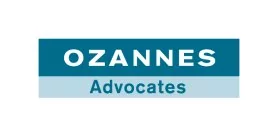Guernsey's funds industry goes back over 30 years when the first retail unit trusts were established. At that time, Jersey had already established a firm foothold with these retail products. Lacking first mover advantage encouraged Guernsey to find alternative source of revenues from the funds sector and thus the Island opened its arms to alternative product types that weren't necessarily acceptable in Jersey. From the late 1980's onwards, Guernsey began to attract the then smaller closed ended fund market and many smaller management firms and start-up funds. By the time that Jersey made a significant attempt to attract the growing alternative funds market it found that it was already entrenched in Guernsey. The growth of the alternative funds market helped place Guernsey on the map amongst leading offshore fund jurisdictions. Guernsey had realised that within the offshore world, the key thing is to have or get a hold of a new line of products, create a precedent, and the rest more often than not will follow suit.
Another interesting development in Guernsey's history is the birthing of the private equity industry. In the 1980s and 1990s private equity was considered to be in an alternative and start-up category. The Guernsey offering to administer these funds and host them as a business site was assisted by the Guernsey Financial Services Commission adopting a more open and pragmatic approach to these types of products. As Guernsey attracted more and more of these private equity products a body of experience and expertise accumulated across the Island. This created a significant snowball effect, and Guernsey soon became a worldwide leader amongst financial centres for the private equity funds market and as a home for the leading private equity fund administrators.
A key aspect of the private equity industry on the Island is the number of high profile players who have established a physical presence within the Island, and who operate both the management and administration of their products in Guernsey. The likes of Guy Hands from Terra Firma, and John Moulton of Alchemy and then Better Capital, Apax Funds, and Primera Funds have all established their own administration in Guernsey. What these management groups have all found is a pool of experienced staff and a cost effective centre for operation and interface with their investor base. It is attractive for them to take direct control of administration, rather than be dependent upon such functions being handled by third party administrators.
While Guernsey has maintained a large presence in alternative funds and private equity funds, the Island has also been a dominant player in the Fund of funds market. Fund of funds cover a wide spectrum of underlying funds where the main manager makes the selection of underlying funds to fit the investment strategy of each particular Fund of funds. While Guernsey is not a typical centre for hedge funds, it is a major player in the Fund of hedge funds arena. Evidence of this are Fund of funds managed by Thames River Capital, Aida and the FRM stable of products. Because most of these funds are close-ended funds it means there are no liquidity requirements that would trigger the Fund of funds to put in an application for redemption at the underlying funds level. This structure has led to rapid growth in the London market for these types of funds. In turn it has created a dynamic infrastructure in Guernsey for the Fund of funds market and has guided Guernsey to one of the leading positions worldwide for the marketing and services provided to these managers.
Guernsey, like many other jurisdictions, is currently facing many challenges from legislative changes in both the EU and US. In the EU specifically the Alternative Investment Fund Managers Directive (AIFMD) has been
met by most jurisdictions with levels of acceptance, but the EU Commission has allowed voices to be heard until the final draft is expected in November. Under the new regime, in the short term Guernsey funds will still be able to benefit from the private placement regimes within individual member states whilst those regimes continue. In the longer term, it is anticipated that eventually Guernsey will look for "jurisdictional recognition" by the EU to allow for so called "pass-porting" of Guernsey products into the EU. AIFMD is not expected to hinder the funds industry over the long term and may in the short term encourage more fund structures to be established in Guernsey.
The key to Guernsey's fund industry is to attract a new business line early so that London and other jurisdictions gain a certain level of comfort with the service providers and level of expertise. This is borne out of the experience of the way that the funds industry has developed in Guernsey and Jersey along different product lines. If you think of securitisation products— Jersey took the lead; if you think of property holding vehicles—Jersey would also tend to be the jurisdiction of choice. However if your interest is in private equity, Funds of funds, and UK listed close ended products, Guernsey would most probably be your first choice. So very often it is a herd mentality and first mover jurisdictional advantage, purely and simply that leads fund product development; once you know the legal and regulatory framework of a jurisdiction, and the infrastructure that is in place, why reinvent the wheel in another jurisdiction? The number of promotional trips taking place involving various government ministers and the private industry is immense. No one is resting on their laurels and no one thinks the golden egg will keep hatching for decades. As the funds industry in Guernsey has done in the past, it will continue to innovate and build new long term relationships.
The content of this article is intended to provide a general guide to the subject matter. Specialist advice should be sought about your specific circumstances.

